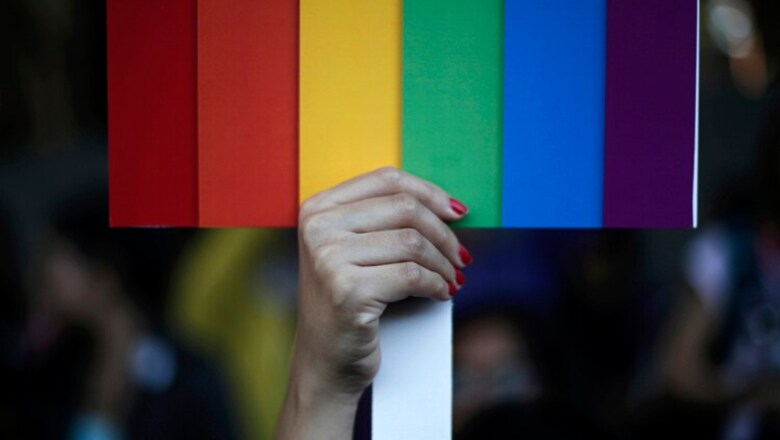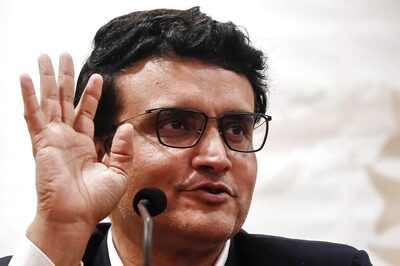
views
Bengaluru: When Balasubramaniam went to the bank to open a savings account, she had to say she was a man.
The 56-year-old has greying hair and wears glasses. When we met, she wore a white sari with a black, flower-patterned border. She was born a man in Thiruvannamalai in Tamil Nadu, and lives in Bengaluru where she works at the Samara Society, a group that teaches transgender people skills like stitching, candle making and typing so they can earn enough money to support themselves.
She said she wanted to open a bank account, and wanted to identify herself as “transgender,” but her paperwork didn’t offer the option. The bank teller rubbed it in. “Why do you wear a sari when you have a man’s name?” he asked.
That question should be irrelevant. A year after India’s Supreme Court passed a judgement that grants legal recognition to India’s transgender community, the Reserve Bank of India this April directed all banks to include “third gender” in their banking form. The directive does not include a deadline by when banks must comply.
India is trying to increase the number of its citizens who have bank accounts. Prime Minister Narendra Modi last August pledged to get tens of millions of people to open accounts and end “financial untouchability.” Banks see new opportunities to serve large numbers of customers, and have urged the government to deposit people’s subsidies in their bank accounts to make sure that they get what they are owed. That includes India’s approximately 500,000 transgender people, according to Census data from 2014 (Some activists say the actual number is six times higher)
The trouble is that Know Your Customer documents of some banks, which banks require as a security measure when people apply for bank accounts, don’t offer a third-gender option to applicants despite the RBI directive.
The problem goes deeper than the lack of a third-gender option. Very few transgendered people have all the identity documents that the know-your-customer process requires. These include PAN cards and proof-of-address documents such as voter identification cards, ration cards, drivers’ licences and passports (all of which offer options for “male,” “female” and “other”).
Getting those documents means having yet other documents like a secondary school certificate or a family ration card. But many transgendered people ran away from home at a young age because of prejudice within the family, said Kalki Subramaniam, a transgender activist and actress in Auroville, Tamil Nadu. That makes it difficult for these people even to establish an adult identity. Some people change their names to break with their past or to go with their new identities, making it even harder to establish who they are or where they come from.
Manjunath, a 22-year-old transvestite who is a student of business management, gave his sex as male on his KYC form, though he usually dresses in a sari when he visits the Corporation Bank where he is a customer. Fortunately for him, he lives in Bengaluru with his family, and was able to prove his identity.
Reuters sought comment from the State Bank of India, ICICI Bank, HDFC Bank, Kotak Mahindra Bank, Yes Bank, Axis Bank and the Indian Banks’ Association. None would comment on the lack of a third-gender option or the difficulty of satisfying KYC rules. An employee of one bank who refused to speak on the record said that the gender choice is irrelevant, and that the identification documents are what count.
Since the RBI guidelines were issued, SBI, ICICI and Canara Bank have created a position for “other” in their forms.
Manjunath’s pragmatism about picking a gender on a form might have expedited his application, but Subramaniam said documents that identify a third gender would be an important step in helping people get over their prejudice toward people who are transgender, transvestites or of an indeterminate sexual group. She cited examples of bank employees and customers teasing transgendered people when they visited banks as a reason why things aren’t as they should be.
Subramaniam also said the RBI needed to take a more welcoming approach towards transgender people with know-your-customer forms. Such documents are mandatory for opening all accounts except or “small accounts” with a maximum balance of 50,000 rupees (about $780). Such accounts also are allowed to stay open only for a year after which the banks decide whether identity and address proofs need to be submitted for their continuation.
“I think this is just a step in taking the movement forward, making transgender people more equal and recognising them as citizens,” Subramaniam said


















Comments
0 comment